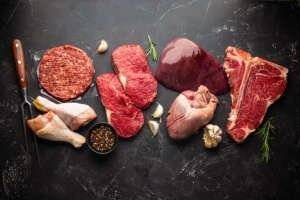Muscle strains often result from overexertion, poor posture, or repetitive stress. Recovery involves more than rest—nutrition, particularly protein, plays a central role in healing. Protein supplies essential amino acids necessary for repairing muscle tissue, promoting growth, and ensuring long-term resilience against future injuries.

Protein: The Foundation of Muscle Repair
When muscle fibres are damaged due to strain, protein aids in the repair process. It provides the building blocks, especially branched-chain amino acids (BCAAs) like leucine, which stimulate muscle protein synthesis (MPS) and accelerate healing. Studies confirm consuming adequate protein post-injury reduces recovery time and muscle soreness.
Enhancing Strength and Growth
In addition to repairing tissue, protein contributes to muscle hypertrophy—making muscles stronger and more resistant to future strain. This is particularly important for athletes seeking joint stability and improved performance.
Scientific Evidence Supporting Protein’s Role in Recovery
The research underscores protein’s effectiveness in muscle recovery. Key findings include:
- Timing is critical: Consuming protein within 2 hours of exercise maximizes MPS.
- Synergy with anti-inflammatory foods: Diets combining protein and inflammation-reducing foods promote faster recovery.
Top Protein Sources for Muscle Recovery

Animal-Based Proteins
- Chicken Breast: High-quality lean protein ideal for muscle repair.
- Salmon: Combines protein with omega-3s to reduce inflammation.
- Turkey: A rich source of BCAAs, essential for reducing fatigue.
Plant-Based Options
- Tofu and Edamame: Complete proteins perfect for vegetarian diets.
- Legumes: Lentils and beans provide plant-based protein and fibre.
Dairy Products
- Greek Yogurt: Contains probiotics and calcium, supporting muscle recovery and overall health.
- Cottage Cheese: Rich in casein, ideal for sustained muscle repair overnight.
Nutrient-Dense Additions
- Eggs: Versatile and packed with all essential amino acids.
- Nuts and Seeds: Provide protein and healthy fats for inflammation reduction.
Optimizing Protein Intake for Recovery
Protein needs vary based on the severity of the strain and activity level. General recommendations:
- Daily intake: 1.2–2.0 grams per kilogram of body weight.
- Timing: Consuming protein-rich foods within 30 minutes to 2 hours post-exercise optimizes healing.
Complementary Nutrients for Muscle Recovery
To support protein’s role in recovery, include:
- Magnesium: Relaxes muscles and supports energy production.
- Vitamin C: Enhances collagen synthesis for tissue repair.
- Omega-3s: Combat inflammation and aid in healing.
Advanced Recovery: Photobiomodulation Therapy (PBMT)
In addition to nutrition, photobiomodulation therapy (PBMT) offers non-invasive support for muscle recovery. Using red or near-infrared light, PBMT:
- Improves blood flow to the injury site.
- Accelerates muscle regeneration.
- Reduces inflammation and pain.
Conclusion
Protein is indispensable for recovering from muscle strains. Along with proper timing and complementary nutrients, it ensures effective repair, improved strength, and prevention of future injuries. Pair protein with a balanced diet, consider innovative therapies like PBMT, and allow your body the time and care it needs to recover and rebuild stronger than before.


